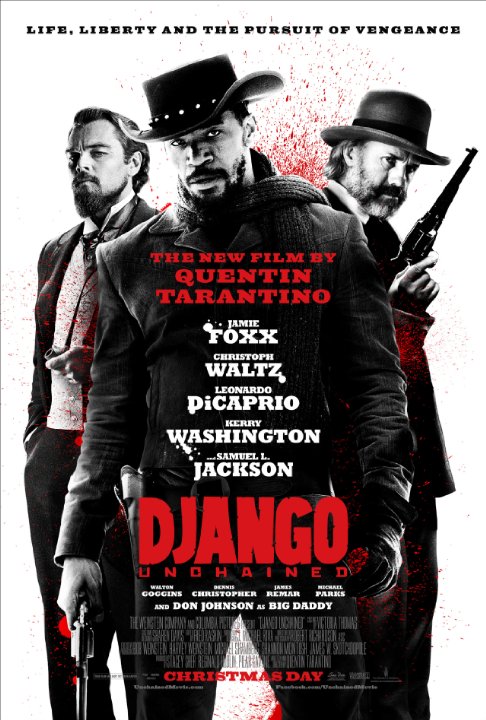Rating of
3/4
One of Tarantinio's Best, But Not the Best
mitchellyoung - wrote on 01/09/13
Quentin Tarantino is a special kind of director. The man knows what he is and stays true to his vision, in every film, giving audiences the good and the bad of his talents. He is a smart writer, a student of character, and an artistic visionary, but also a rampant egotist and somewhat of a sadist. These qualities are often on full display in his films, but no more so than in Django Unchained.
In Django, Tarantino immerses the audience into a world wholly of his own creation - populated by a cast of eccentric, terrifying, and courageous characters. The film is a twisted view of revisionist history, but doesn't stray too far from actual historical climate so as to be too extremely "out there."
The characters and setting are rich, as written, but they really come to life, thanks to Tarantino's skilled direction of a talented cast. Jamie Foxx is more than a one-dimensional hero and Christoph Waltz gives the most nuanced and creative performance of the film. Leo DiCaprio brings his acting greatness to a truly despicable role, creating a memorable and detestable villain. Special mention should be made of Samuel L. Jackson who completely plays against type and plays one of the more layered and rich characters he has in years (let's face it - he's been playing a caricature of himself in film after film for the better part of a decade.) His character is a bitter, nasty-hearted villain who, at the same time, is a pathetic shell of a man.
The photography is lush and beautiful and the score befits the film in a very spaghetti Western way.
The negatives of the film may be positives, depending on your perspective. This is a film of excess and up there as one of Tarantino's most self-indulgent films. The director doesn't cut a shot, a line, or a moment, even when it threatens to drag the film down. At nearly three hours, at times, the movie is a wandering piece of Tarantino-ness and sometimes it feels like the director is shooting a scene just so he can clap his hands in glee at hearing his own written words. There are some odd visual and sonic choices at times - jarring montages, title flashes, smash cuts, and two odd inclusions of modern-day rap music that don't seem to quite fit the mood of the film. It feels like Tarantino is pulling out all his stops visually, but he would be better served in showing some self-control at times. I can't even imagine what the director's cut of Django will look like.
Much has been made of Tarantino's use of racial dialogue (which I felt was sometimes needed) and the film's gory violence. It's true - Tarantino does have a sadistic streak and, as with his other films, at times, Django is nasty and brutal. And, yes, at times Tarantino does dwell a little too long on the violence (though one shootout scene is fantastic).
It's these quirks that keep the film from being a four-star movie and I still maintain that Pulp Fiction, Jackie Brown, and the second Kill Bill film are Tarantino's best movies. As a whole, Django is good fun and, though it does get nasty and dark at times, it is always quick to reel the audience back in with a clever visual gag or one-liner.
The courage of the title character is believable and it is Jamie Foxx's determination and passion that give the film the meaningful edge to become the great film that it is.




